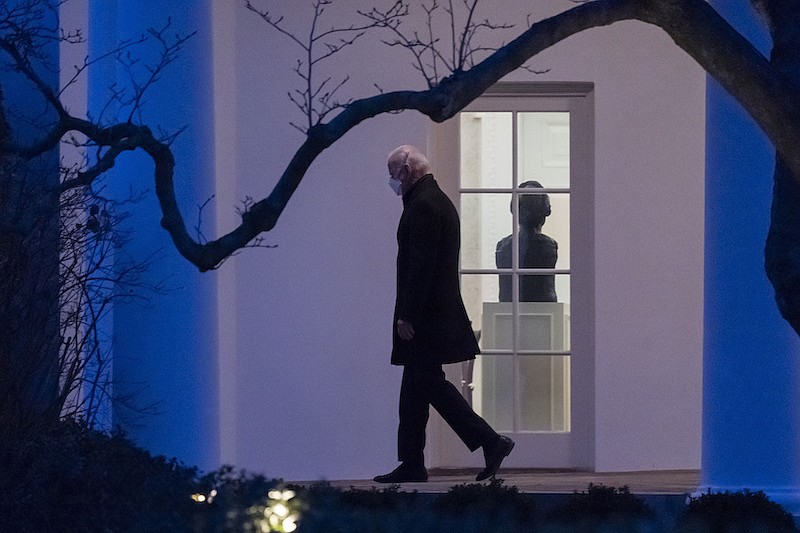The electric vehicle battery maker whose Georgia factory is threatened by an adverse trade commission ruling plans to appeal to the White House for help.
SK Innovation said the inability to make batteries "could have a serious adverse impact on President (Joe) Biden's policies to combat climate change and expand the electrification of the U.S. auto fleet."
The International Trade Commission ruled Wednesday that SK, a South Korean company, stole trade secrets from rival LG Energy Solution.
The ruling jeopardizes SK's plans to manufacture electric vehicle batteries in a $2.6 billion factory under construction in Jackson County, one of the biggest economic development projects in Georgia history. To win the project, the state provided $300 million in grants, free land and other incentives to SK.
SK said it plans to speak with the Biden administration, in hopes that it "will take seriously the negative economic and environmental impact of this decision and reverse it so that we can continue to operate."
By law, the president has 60 days to review the ruling and could alter or block it.
LG said after any White House action, SK could also appeal to federal court, or it could come to a business agreement with LG.
"All we want is for the plant to not use our technology, or if you want to use the technology, come clean to us and pay compensation under law, and we'll be happy to discuss a commercial resolution to this," LG attorney Song Jung said Thursday.
He said the two sides have had discussions, but that LG had not heard from SK since the ruling. LG makes electric vehicle batteries in a factory in Detroit and has another plant under construction in Ohio.
The ruling gave Ford and Volkswagen, who were in line to buy SK batteries, a reprieve to find a new supplier if necessary.
The court said SK could make batteries for Ford for four years and Volkswagen for two years. After that it banned SK from importing components needed for battery construction for 10 years.
Mike Tolbert, a Volkswagen spokesman, said the decision doesn't change the company's commitment to produce electric vehicles in its Chattanooga plant by 2022.
Volkswagen's plant had a spillover effect on Georgia, as suppliers have built on both sides of the state line.
T.R. Reid, a Ford spokesman, said in an emailed statement the company's plan to build electric pickup trucks is a top priority and the decision "supports our plans to bring the all-electric Ford F-150 to market in mid-2022."
State officials have warned that Georgia could lose thousands of jobs and billions of dollars in investments if the plant is forced to close.
Georgia could claw back some of the financial incentives it provided to SK, if a certain number of jobs are not created, Pat Wilson, commissioner of the Georgia Department of Economic Development, said in an emailed statement. Otherwise, the state is sticking by SK.
"We remain committed to SK and interested in the impact of the project on the state," Wilson said Wednesday.
LG attorney Jung said it was not their intention to hurt the state or Jackson County, but the company could not let SK get away with the theft of intellectual property.
LG also filed a federal lawsuit in Delaware, which is stayed until the trade commission appeals play out. That could take up to two years, Jung estimated.
